Project Native Informant presents Scifi New Queer Cinema, 1994-2023, a solo exhibition of Shu Lea Cheang’s four major film works: FRESH KILL, 1994, I.K.U., 2000, FLUIDØ, 2017 and UKI, 2023. Shu Lea Cheang’s work dismisses disciplinary limitations, conventional separations of form and content, aesthetics and truth. Her genre bending gender hacking practices challenge existing operating mechanisms and society’s structural boundaries. Through worlds of apparatus infiltration, system hacking, minds are penetrable, sensations communicable.
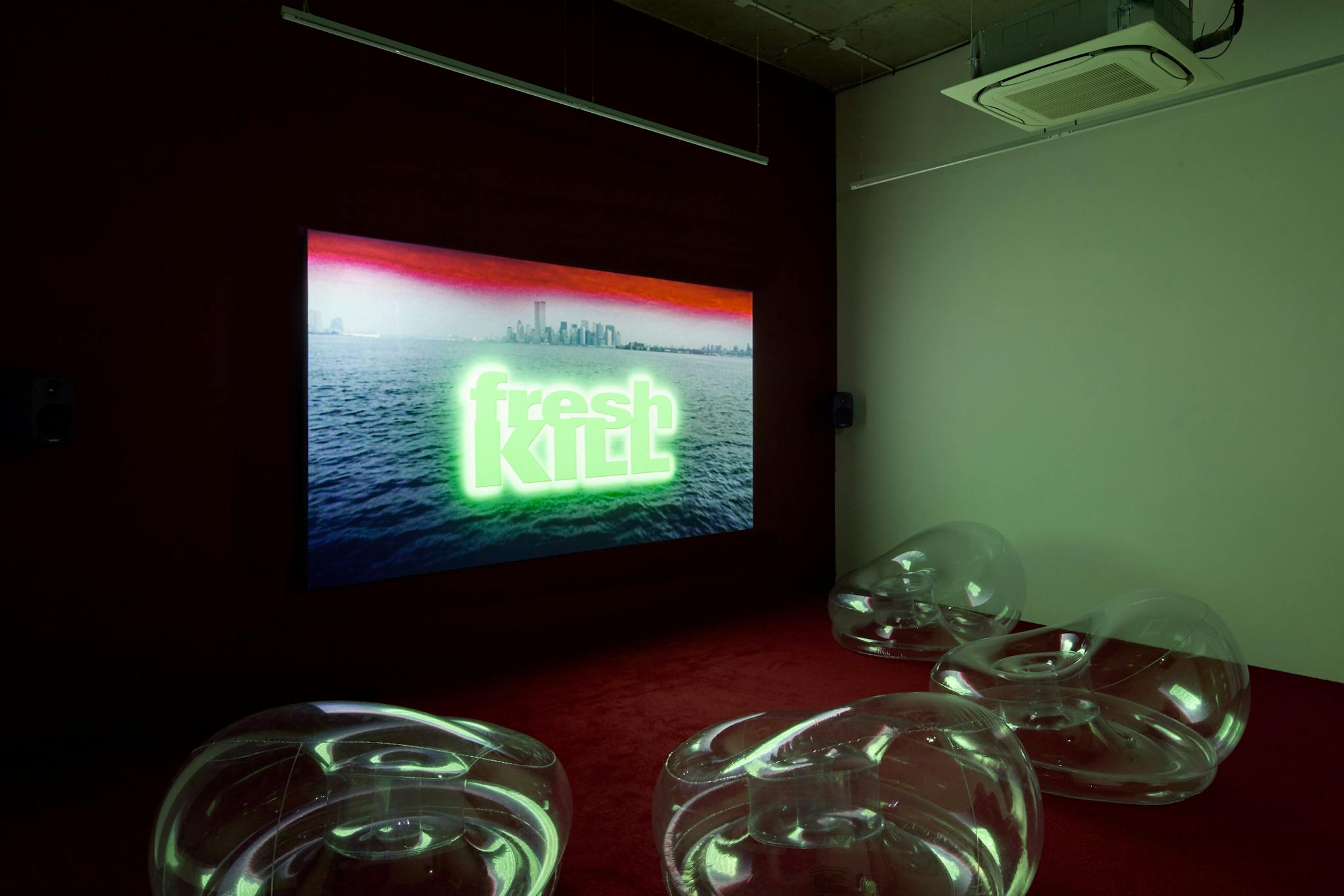
Installation View
Shu Lea Cheang
Scifi New Queer Cinema, 1994 - 2023
Project Native Informant, London
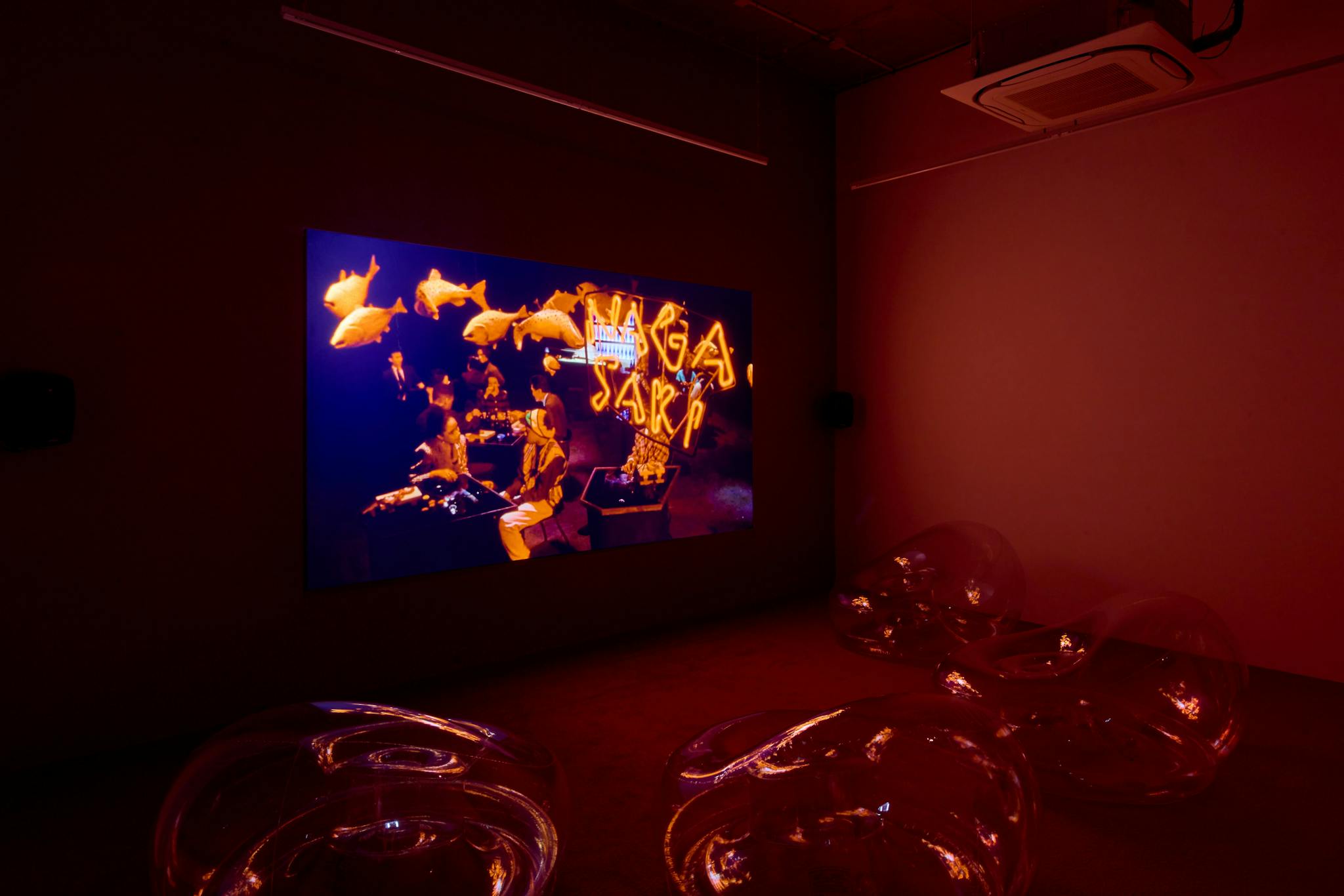
Installation View
Shu Lea Cheang
Scifi New Queer Cinema, 1994 - 2023
Project Native Informant, London
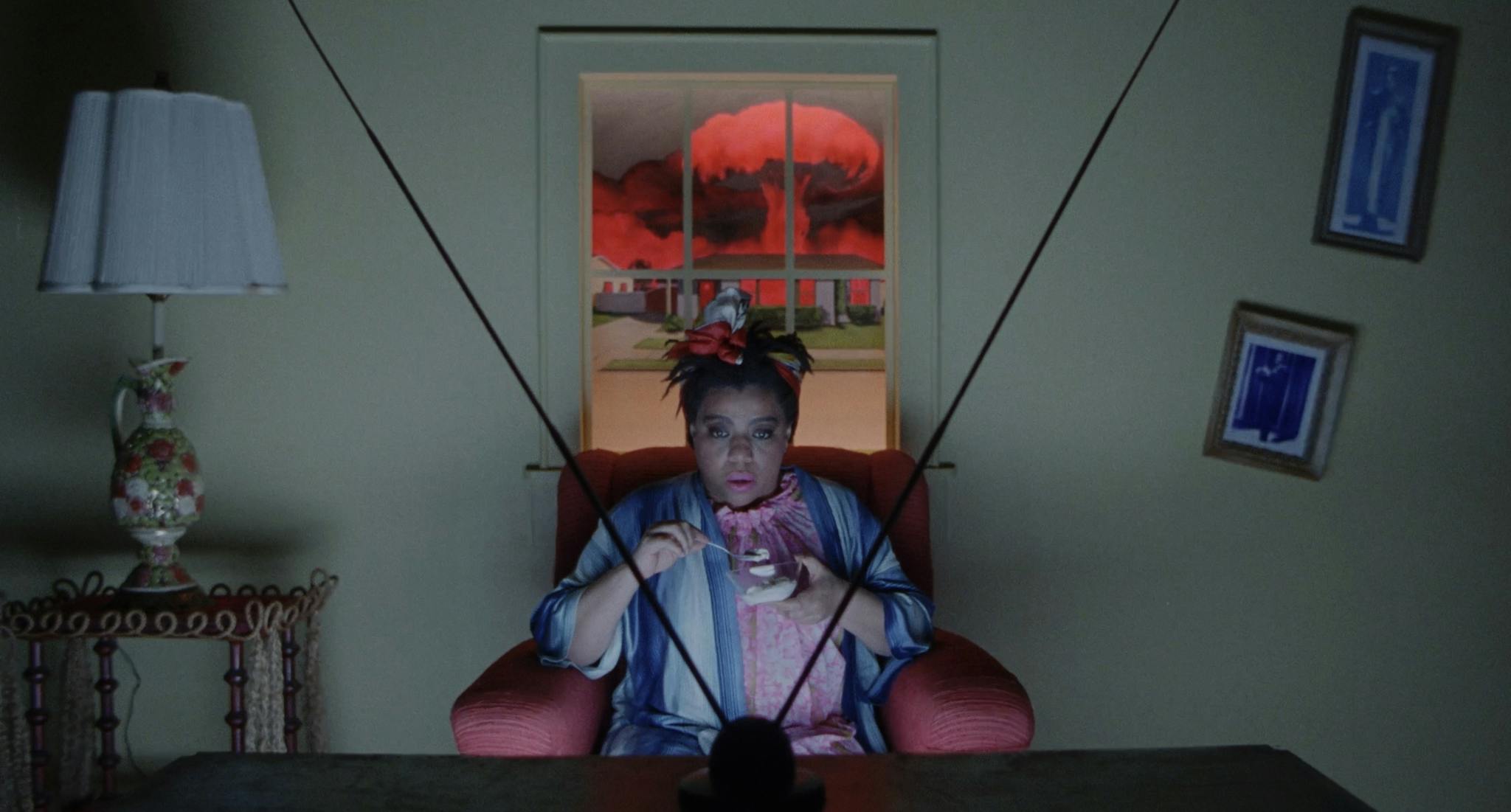
Shu Lea Cheang
Still: FRESH KILL
1994
Single-channel HD video
1 hour, 20 mins
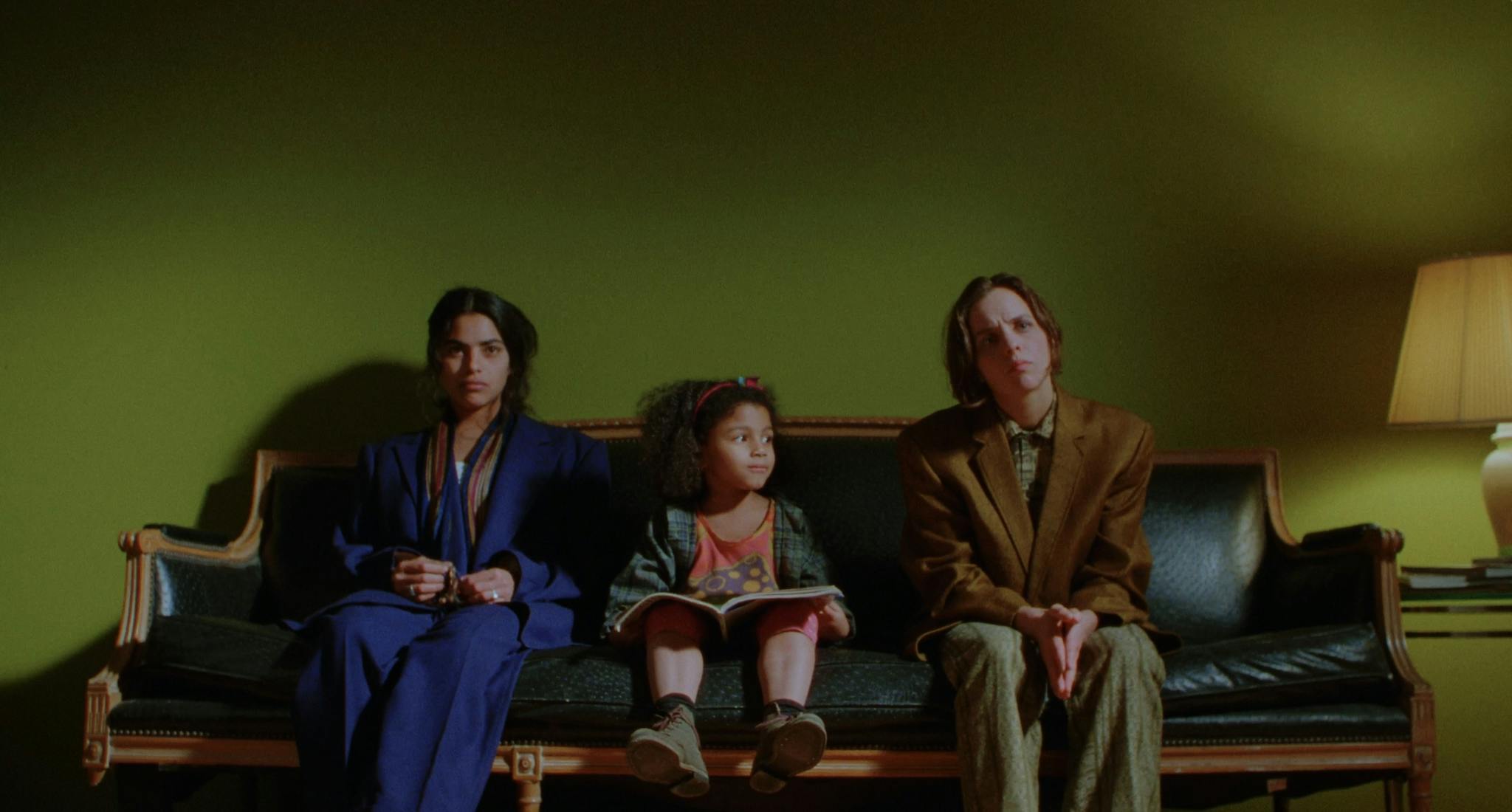
Shu Lea Cheang
Still: FRESH KILL
1994
Single-channel HD video
1 hour, 20 mins
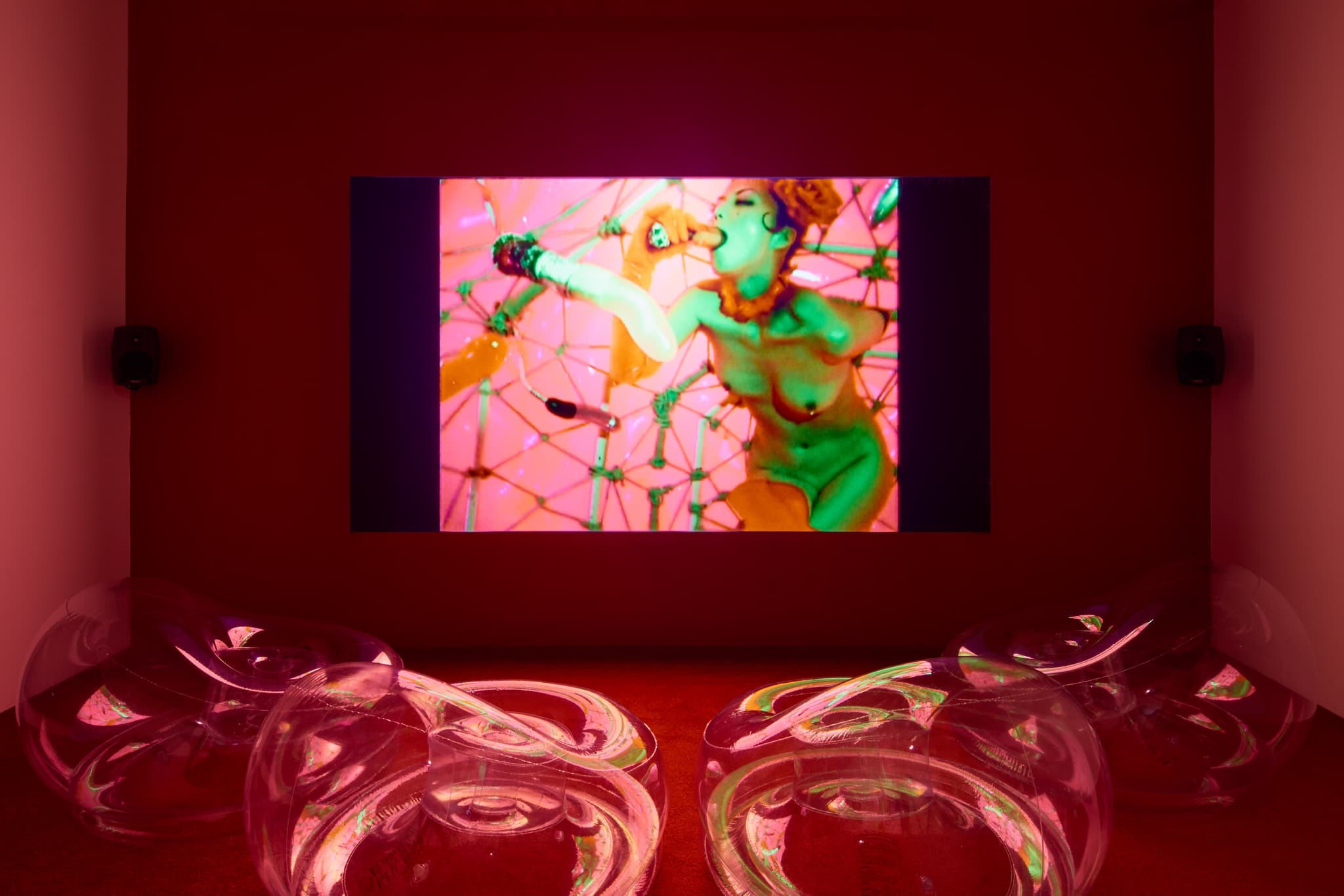
Installation View
Shu Lea Cheang
Scifi New Queer Cinema, 1994 - 2023
Project Native Informant, London
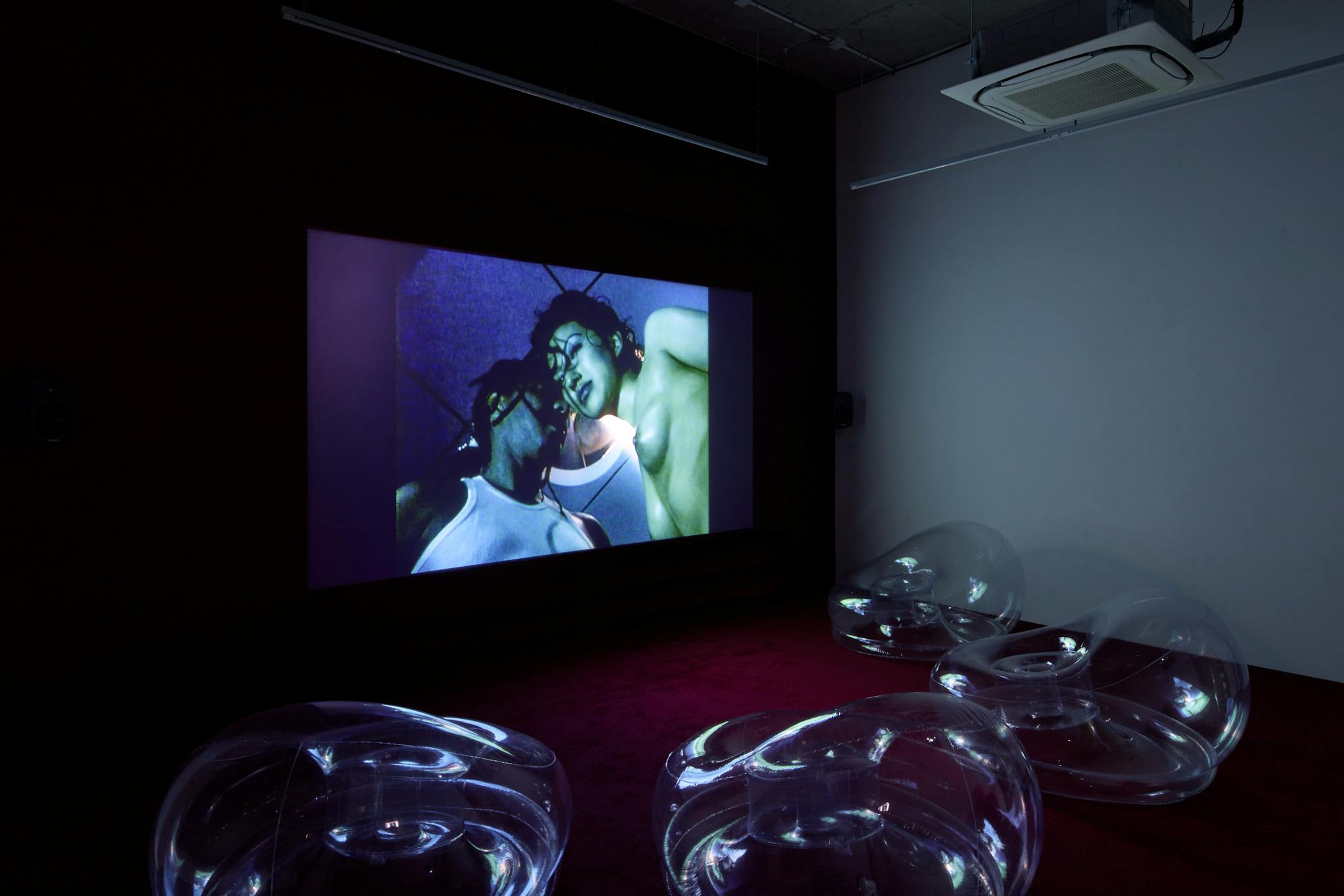
Installation View
Shu Lea Cheang
Scifi New Queer Cinema, 1994 - 2023
Project Native Informant, London
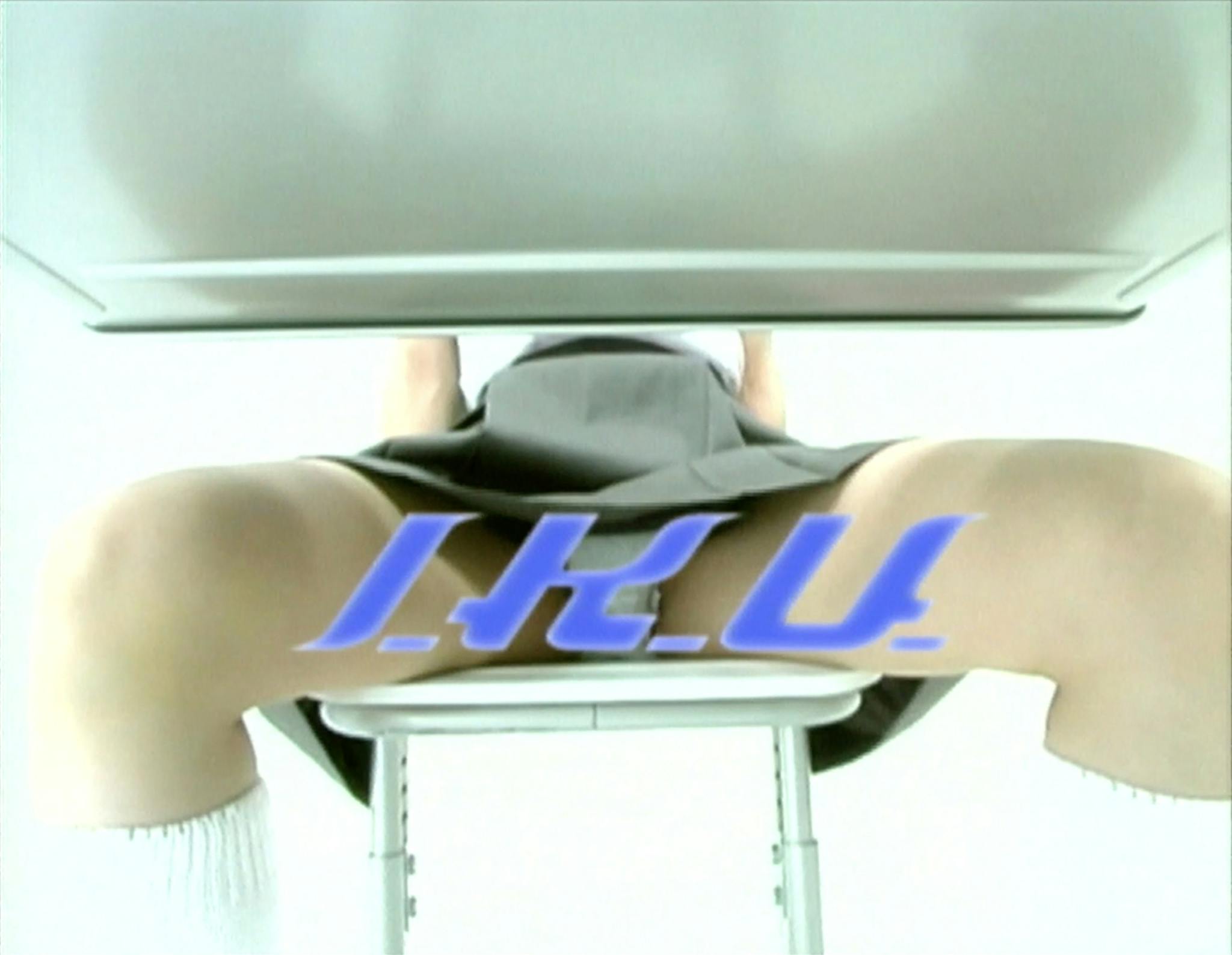
Shu Lea Cheang
Still: I.K.U.
2000
Single-channel HD video
1 hour, 30 mins
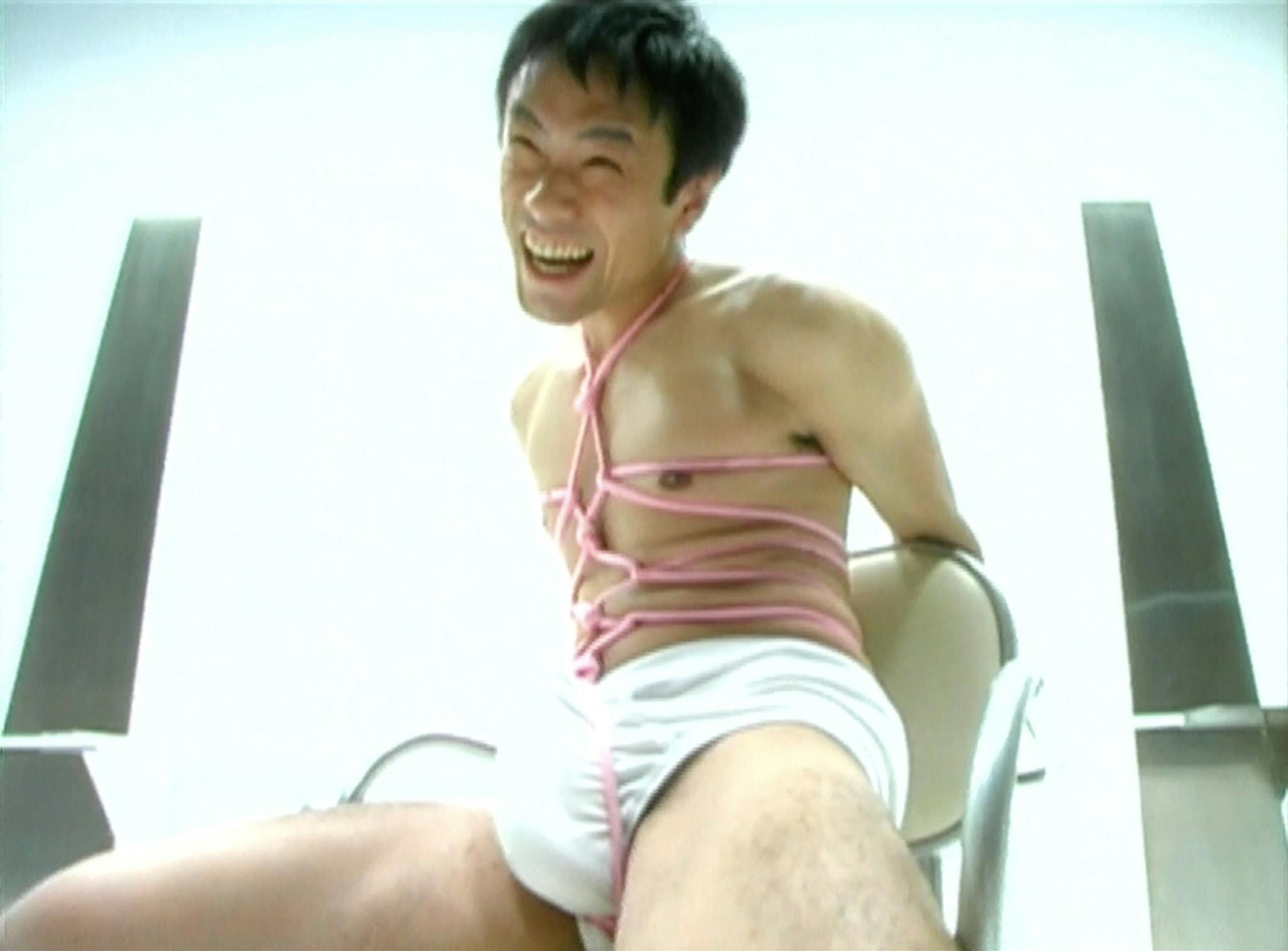
Shu Lea Cheang
Still: I.K.U.
2000
Single-channel HD video
1 hour, 30 mins
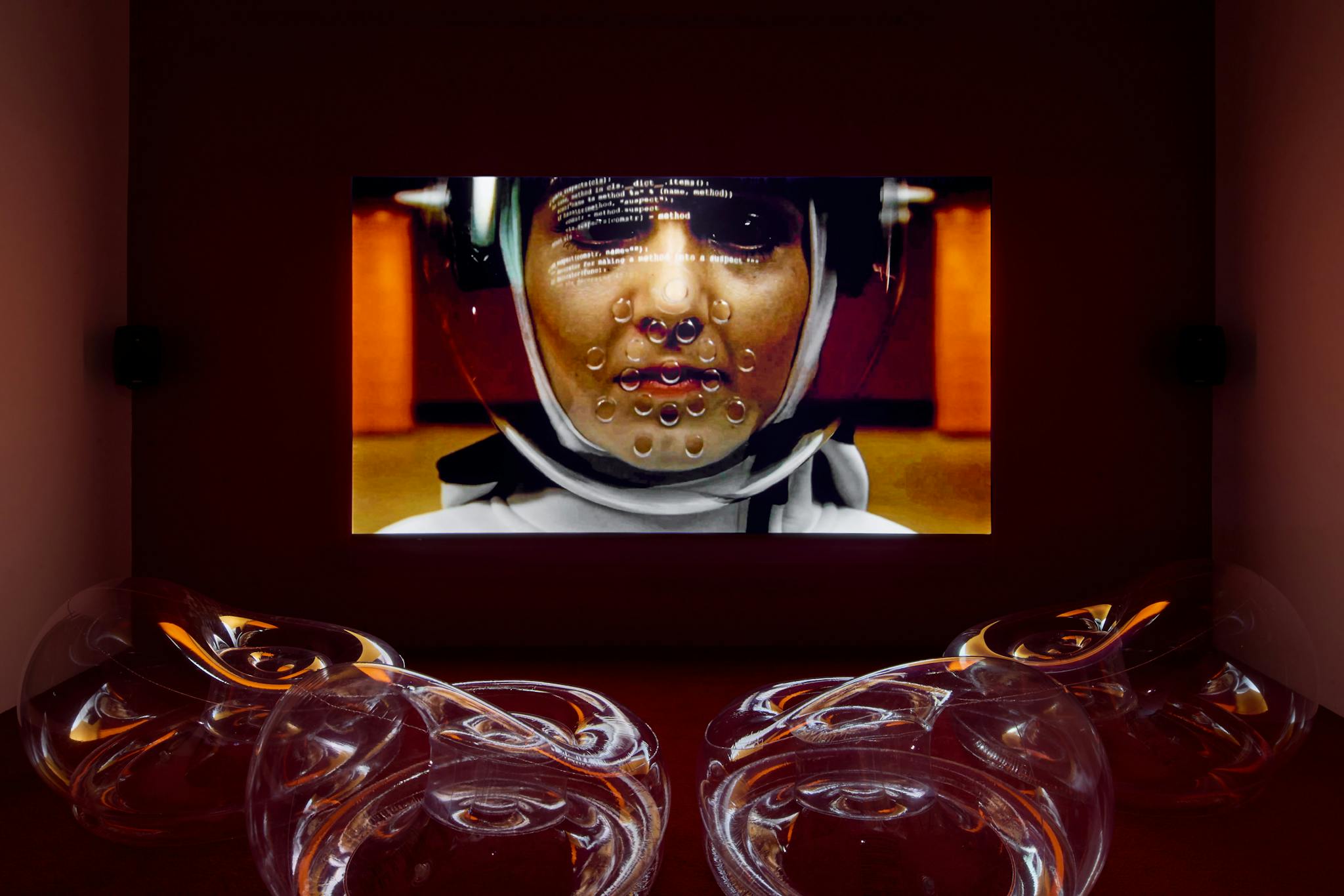
Installation View
Shu Lea Cheang
Scifi New Queer Cinema, 1994 - 2023
Project Native Informant, London
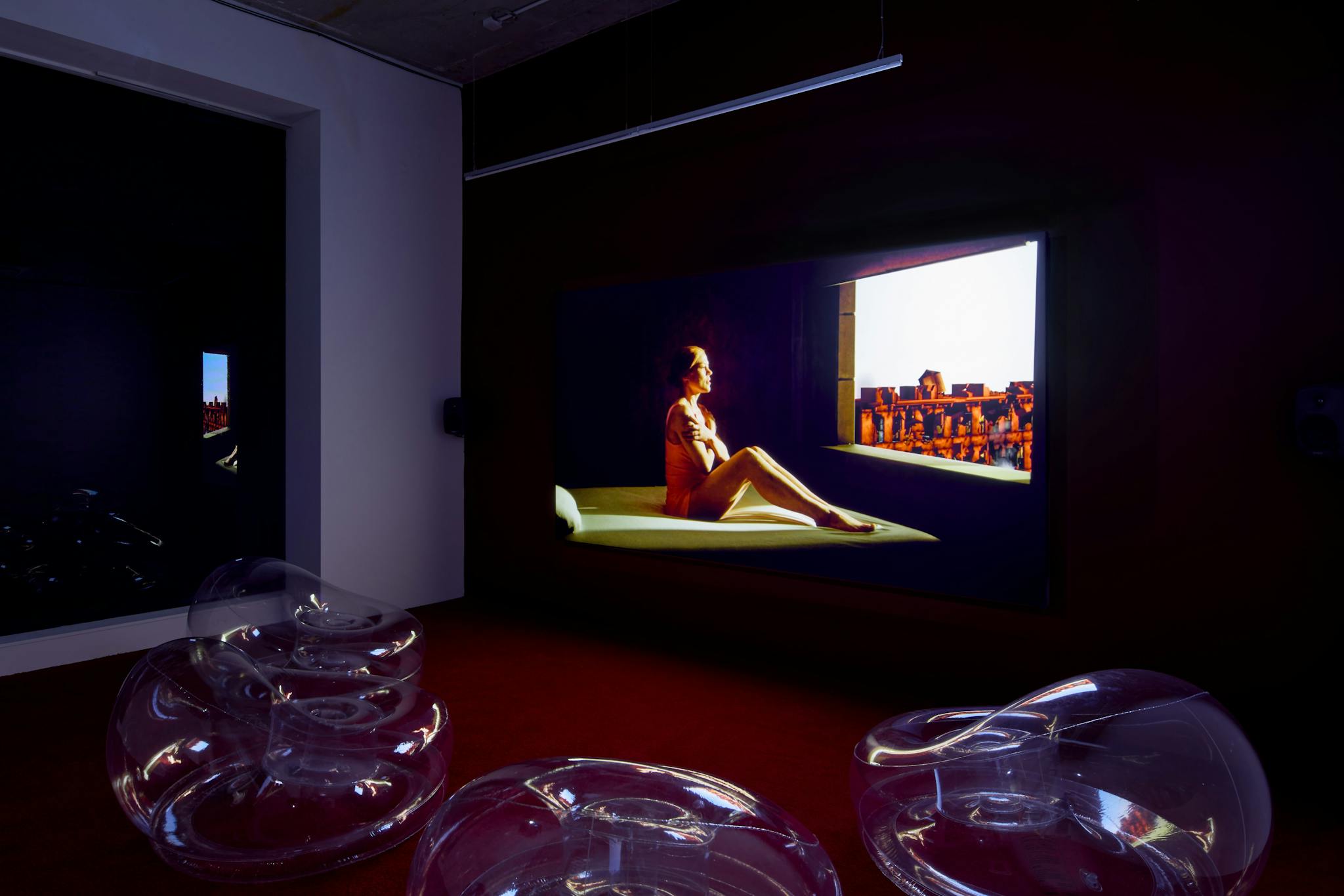
Installation View
Shu Lea Cheang
Scifi New Queer Cinema, 1994 - 2023
Project Native Informant, London
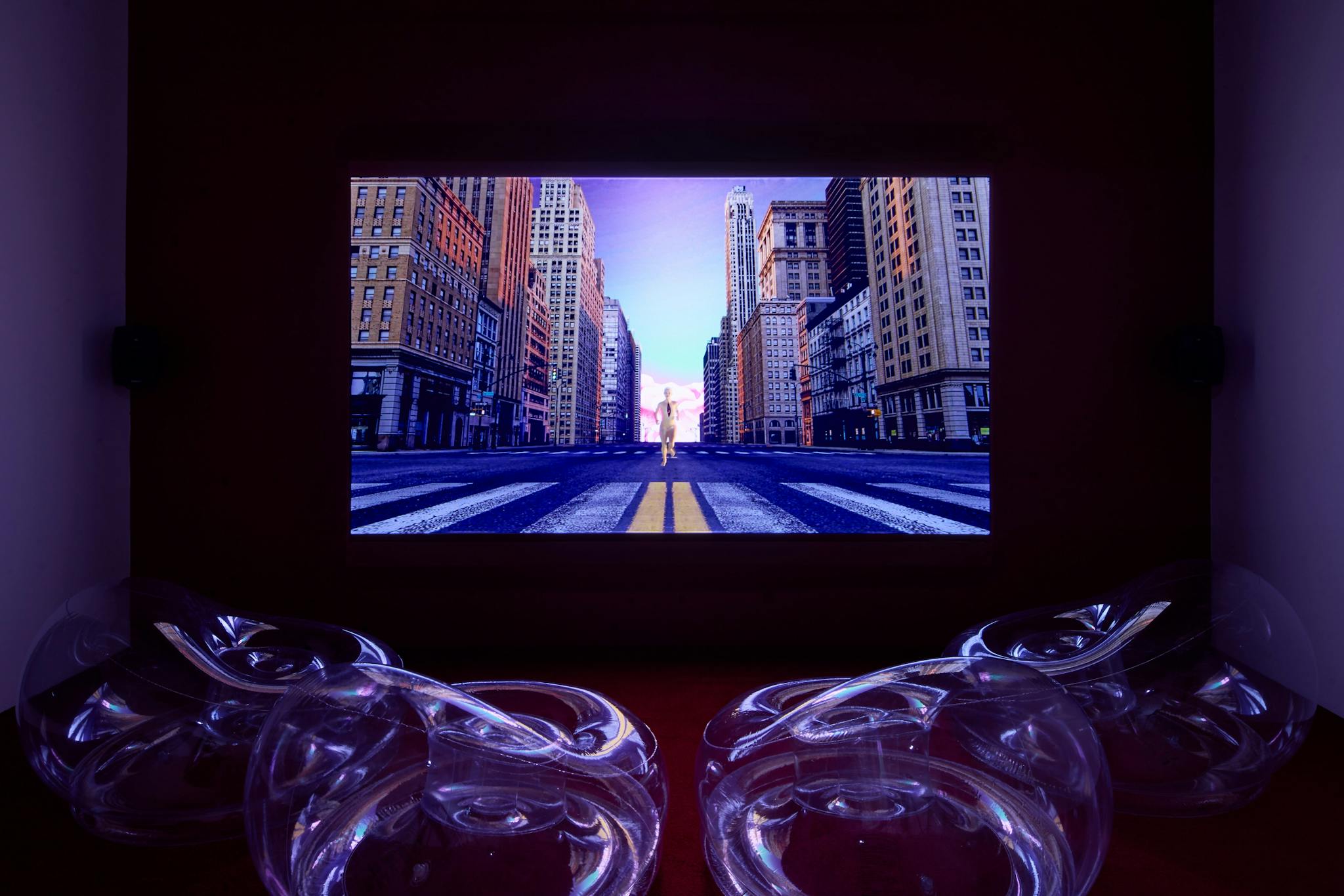
Installation View
Shu Lea Cheang
Scifi New Queer Cinema, 1994 - 2023
Project Native Informant, London
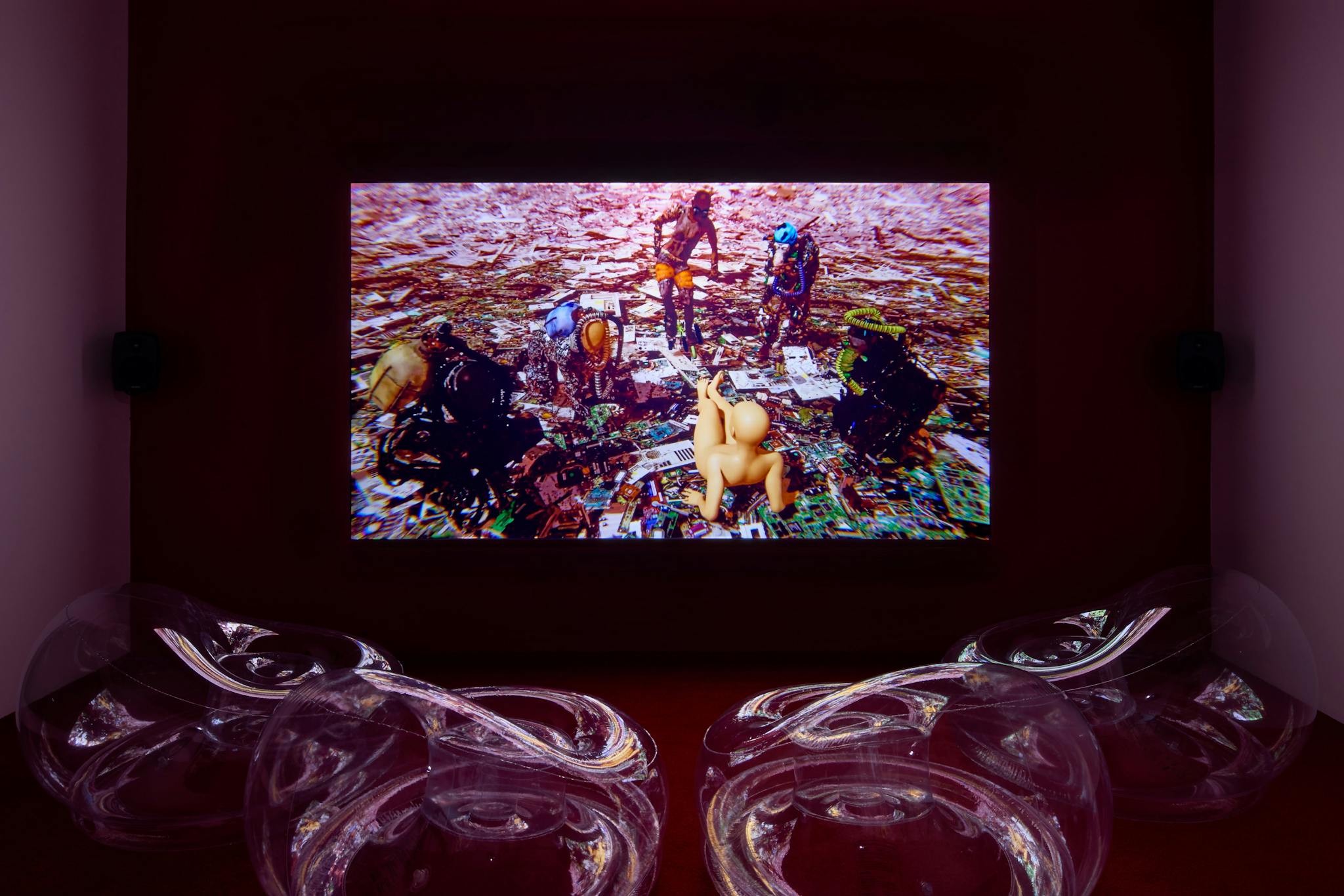
Installation View
Shu Lea Cheang
Scifi New Queer Cinema, 1994 - 2023
Project Native Informant, London
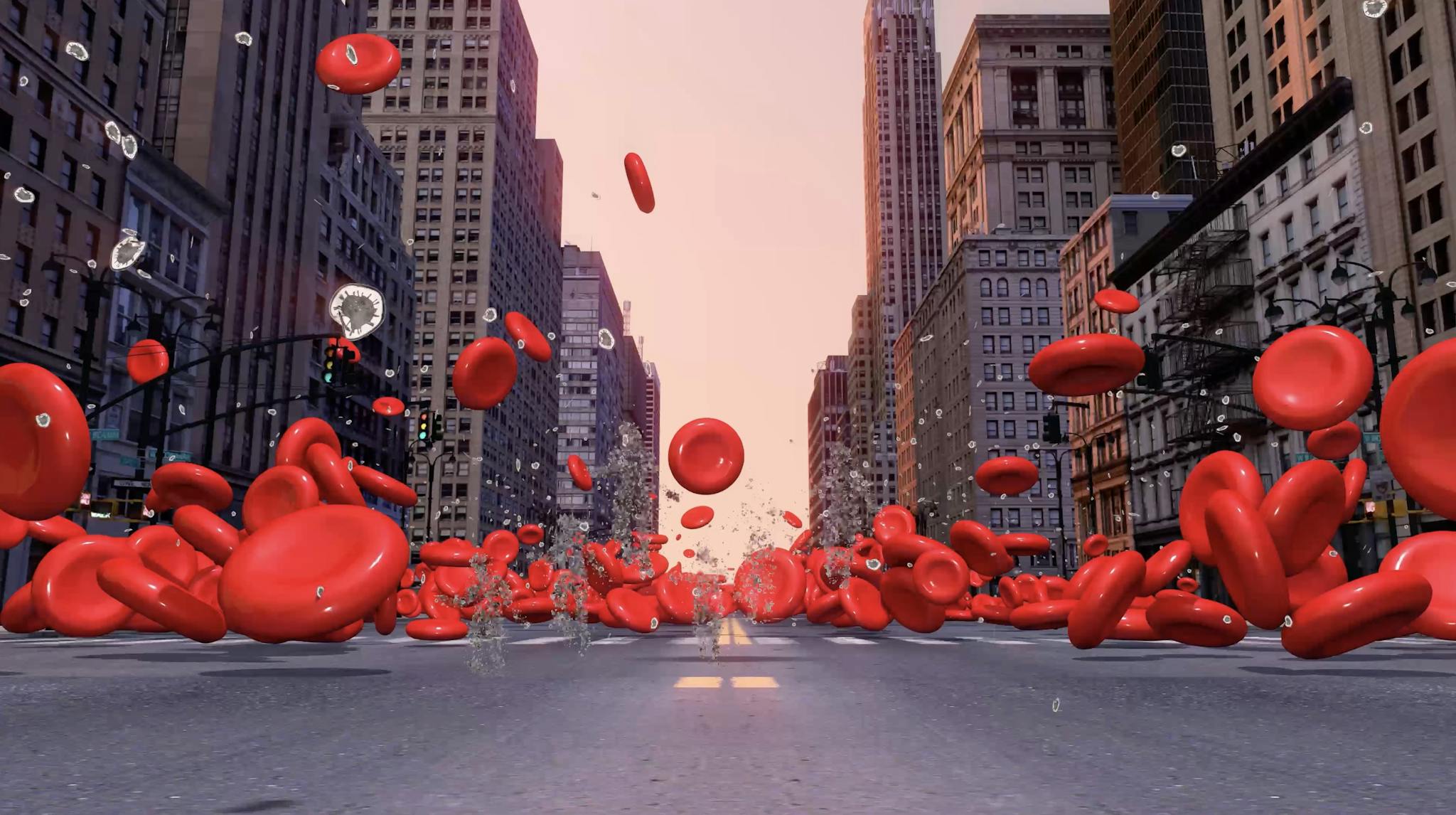
Shu Lea Cheang
Still: UKI
2023
Single-channel HD video
1 hour, 20 mins
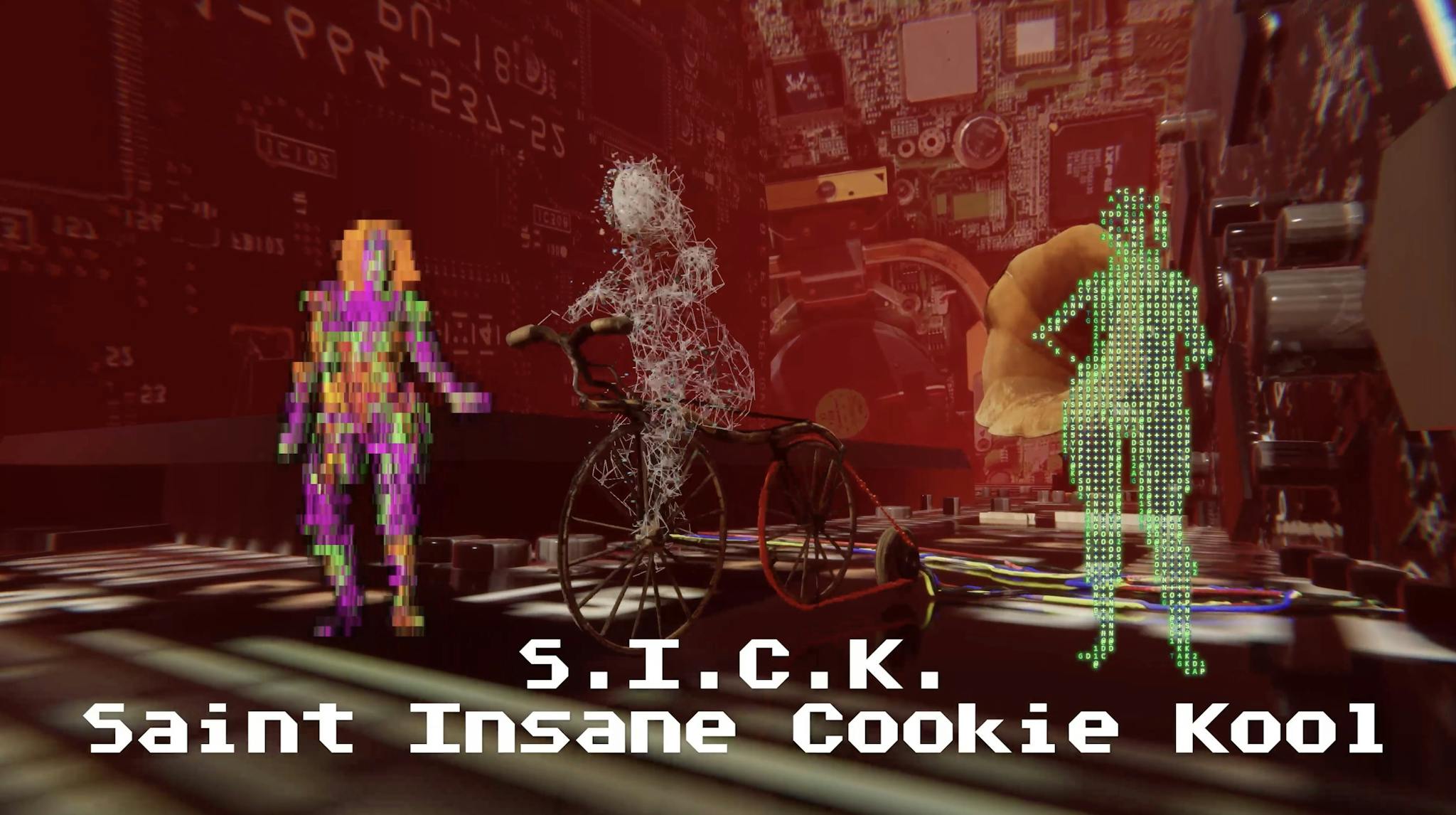
Shu Lea Cheang
Still: UKI
2023
Single-channel HD video
1 hour, 20 mins
New Queer Cinema, a term coined by critic and scholar B. Ruby Rich - deeply engrained in the politics of feminism and AIDS activism - argues for a new queer cinematic practice which centralises pleasure, ambiguity, radicality and fluidity, rejecting het- eronormative representation and assimilation politics. 1 Cheang augments New Queer Cinema in numerous ways, but crucially with the genre of science fiction. Perhaps most apt here, science fiction expounds a futuristic narrative, reflecting on the con- temporary present, in all its disjunctions and hypocrisies.
In After Life: De Anima and Unhuman Politics, Eugene Thacker notes, "If our global context of climate change, disasters or complex networks tells us anything, it is that political thought today demands a concept of life adequate to its anonymous, unhuman dimensions, an unhuman politics, for unhuman life." 2 The use of ‘unhuman', rather than the inhuman or nonhuman, suggests strange realms and lives that reveal themselves by turning toward the nascent, unforeseen and demanding interactions or limits between the human and nonhuman. In Cheang's explorations of the rise of the multination, biotechnology and precarity, she has been prescient in her vision of the future and vectors of resistance. Her practice is grounded in the embodied and disem- bodied, networked and intimate, complex and joyous.
FRESH KILL, Cheang’s eco-cybernoia directorial debut, is a bracing, queer feminist response to the patriarchal poison of corporate capitalism - a torrent of multinational treachery. This post-apocalyptic world finds a lesbian couple, living in a bloody-skied Staten Island, NY, at war with a multinational corporation that is slowly poisoning citizens via toxic cat food, contaminated sushi and nuclear waste. Challenging normative concepts of identity and multiculturalism, FRESH KILL's transnational consumer culture of existential horrors and continual narrative TV commercial interruptions, shows that there is chaos not in spite of an imperialist, ecofascist world order, but because of it.
Provoking meditations on the nature of sex, narrative, and representation, Cheang defines the prismatic I.K.U. precisely: a sci-fi cyberpunk porn film that takes up where Blade Runner left off. REIKO - a trained replicant coder originally developed by GENOM Corporation - roams the metropolis of New Tokyo to collect human orgasm data. The shape-shifting irresistible hu- manoids accumulate valuable hard drive data, transmitting the specifications of orgasms into the centralised, corporatised and downloadable databases. I.K.U. frees the body from gender restrictions in a depiction of non-fetishised trans and cis gendered bodies. With REIKO oscillating from instrument of pleasure to anarchic disruptor, Rich notes, Cheang’s work ‘empowers the object of fantasy, and merges the user and the used, the carrier and the carried, into a cyber-satyricon of impulses, stimulants and gratifications.’ 3
Set in the post-AIDS future of 2060 is the sci-fi cypherpunk FLUIDØ. After the government declares the eradication of AIDS, mutated HIV viruses result in the emergence of ZERO GEN - genetically evolved, gender-fluid humans whose ejaculate is an intoxicating hyper-narcotic of the 21st century. As a war on drugs begins, ZERO GEN are declared illegal. The bio-drug carriers are caught between underground drug lords, glitched super agents, a scheming corporation, and a corrupt government. Articulat- ing the ascendency of bio-technical solutions that exploit organic systems for industrial purposes, FLUIDØ projects corporate collusion, conspiracy and pharmaceutical greed, in which our bodies are colonised, engineered and reconstituted.
Conceived as a sequel to I.K.U., Cheang’s post net-crash, sci-fi, alt-reality feature UKI explores biomedical practices, institutional oppression, pollution and how bodies are surveilled, regulated, optimised and exploited. UKI’s storyline unfolds as we follow a defunct REIKO, dumped on the vast tech wasteland of E-Trashville. Parallel to REIKO, in a city besieged by social unrest and a viral epidemic, a 24-hour diner becomes the gathering point for a group of activists, hackers, and dissidents. They exchange in- formation while uncovering GENOM’s reckless bioengineering schemes to exploit the population through the commodification of sexual pleasure. With the help of E-Trashville’s transgenic queer inhabitants, REIKO’s glitched body is coded and rebooted to reemerge as UKI the Virus. Cheang imbues UKI with the power ‘to mobilize, to infiltrate, to subvert.’
In consistent prescient rigour, Scifi New Queer Cinema, 1994-2023 forms visual flotsam and jetsam of new propositions, new images of and for the queer community. Anti-corporate science fiction screeds are drawn from a feminist, techno-genre absorption. Distortions unfold when the physical is translated into virtual space, a salvation or reconciliation for Cheang's lived experience. Throughout, bodies are increasingly extracted, abstracted, subjected and packaged to be opened up. Neither pes- simistic anticipations or utopic visions, Cheang's works singularly probe critical questions without defining end goals, riding the stream in her unique vision.
1 Rich, B. Ruby, New Queer Cinema: The Director's Cut, 2013.
2 Thacker, Eugene, ”After Life: De Anima and Unhuman Politics" in Radical Philosophy 155, 2009.
3 Rich, B. Ruby, “The I.K.U. Experience: The Shu-Lea Cheang Phenomenon” in Cinevue, July 2000.